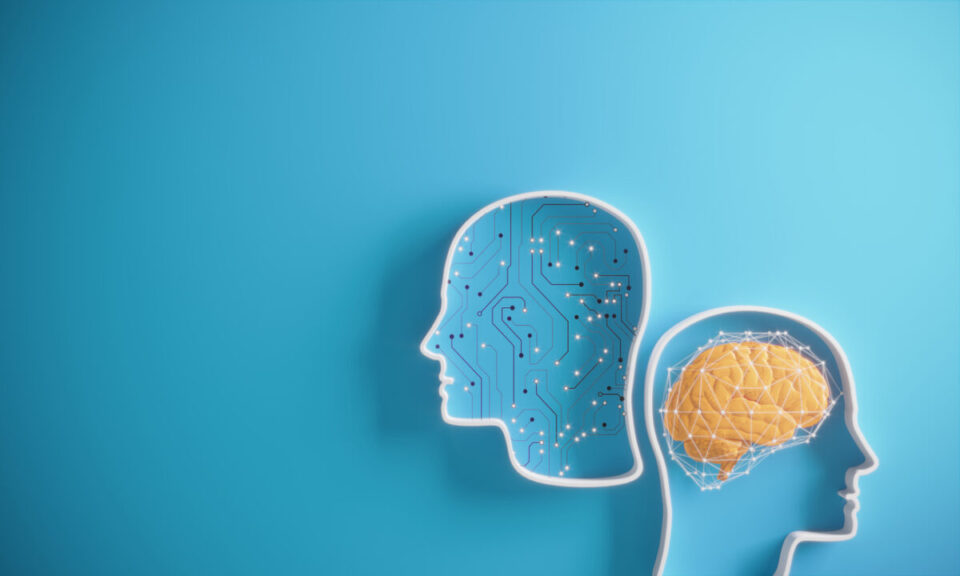This November, The Fintech Times shines a light on the world of Artificial Intelligence (AI). From automation to intelligent analytics and decision making toolkits, AI has taken the world of work and made it work harder.
The human-machine connection – artificial intelligence continues to slip into the cracks across the office, workspace and system, providing a helping virtual hand that never sleeps. As Andrew Ng, a leading computer scientist said: ‘AI is the new electricity’; because it is set to have as transformative an effect on every business and sector as the first transformer in the first power station had on industry more than 100 years ago. AI is not capable of replacing the human side of the work equation, it supplements it. It is the technology that improves productivity, captures the insights in the lakes of data, streamlines systems and reduces risk with intelligent insights and algorithms. Blending emergent technologies and inventive approaches AI at work is hard at work changing how people do just that – work.
AI in the FinTech space has multiple applications, but perhaps the most prolific and visible is in security. AI offers an additional layer of protection against fraud and cybercrime at a time when both are endemic. Charlie Roberts, Head of Business Development, UK, Ireland & EU at IDnow, says: “Cyber fraud is a global threat which experts identify as the world’s fastest-growing and most dangerous economic crime. AI is recognised as a key technological driver in the identification verification market, one which may believe will help tackle the issue of cyber fraud.”
IDNow uses a proprietary AI technology to verify documentation using the camera on a mobile device. The AI scans the documents, using security features and watermarks to establish authenticity. Onfido and Skypiom also use AI to detect fraud and manage accurate identity verification. The Onfido solution uses ML learning models to automatically identify a genuine document or photo to reduce identity card fraud – Michael Van Gestel, Global Head of Fraud at Onfido, adds: “As the security industry gets better at detecting the 2% that are fake, we can consequently identify the 98% that are genuine with greater confidence. AI-powered identity verification is mitigating vast amounts of fraud while improving the customer experience.”
For OneSpan, AI in security sits on the other side of the Fintech coin – bolstering security mechanisms in banks as they are the last line of defence against fraud. As Mark Crichton, Senior Director of Security Product Management at OneSpan points out: “In banking, advances in AI and ML have been instrumental in reducing fraud as the algorithms can analyse human amounts of data.” Wading through the vast quantities of data generated by system and customer, AI can analyse transactions, devices, behavioural data, geographical data and so much more; allowing for improved detection of cyberattacks, a reduction in false positives, and improvements in regulatory compliance.
While AI and ML are not at the point where they can prevent the cyberattack from happening, the technology on offer today does provide a first and effective alarm system that’s more advanced and capable than anything that has come before. AI is the vigilant digital security guard that never sleeps, and offers the FinTech industry an extra line of defence. But the value of AI at work doesn’t just sit in security, no matter how pressing that problem may be.
The world is a complex and chaotic system undergoing constant change, and understanding this world has immense economic potential. This is where AI and ML come in, allowing for the organisation to determine cause, effect, data and potential. Darko Martovski, CEO at causaLens, explains: “Being able to understand the causal structure of the economy allows businesses to better predict the future and optimise their processes. Due to the complexity of the global economy, financial companies require entire teams of data analysts and scientists in order to model these numerous networks around the world, and as we have seen with many crises, when they get it wrong the economy suffers drastically.” The platform does autonomous modelling at scale and helps to increase the efficiency of teams working within the financial sector.
Then there’s solutions such as Synthesized that pull together both the threads of data and of security. This solution automates all stages of data provisioning using AI and reduces the repetitive nature of datasets while allowing for improved testing. Recently, the company worked with the Financial Conduct Authority (FCA) on a collection of synthetic fraud datasets for secure third-party collaboration. AI can also be used to improve trading by industrialising the invention process of trading models (Quantumrock), to mitigate risk and financial crime (Feedzai and LexisNexis Risk Solutions), and to improve management of workflows and insights (ThoughtSpot). The applications aren’t quite endless, but they’re changing the face of AI at work and the innovations are likely to keep coming – as long as there is digital, crime and customer, there will be AI, ready to help the industry leapfrog the next hurdle in its path.




